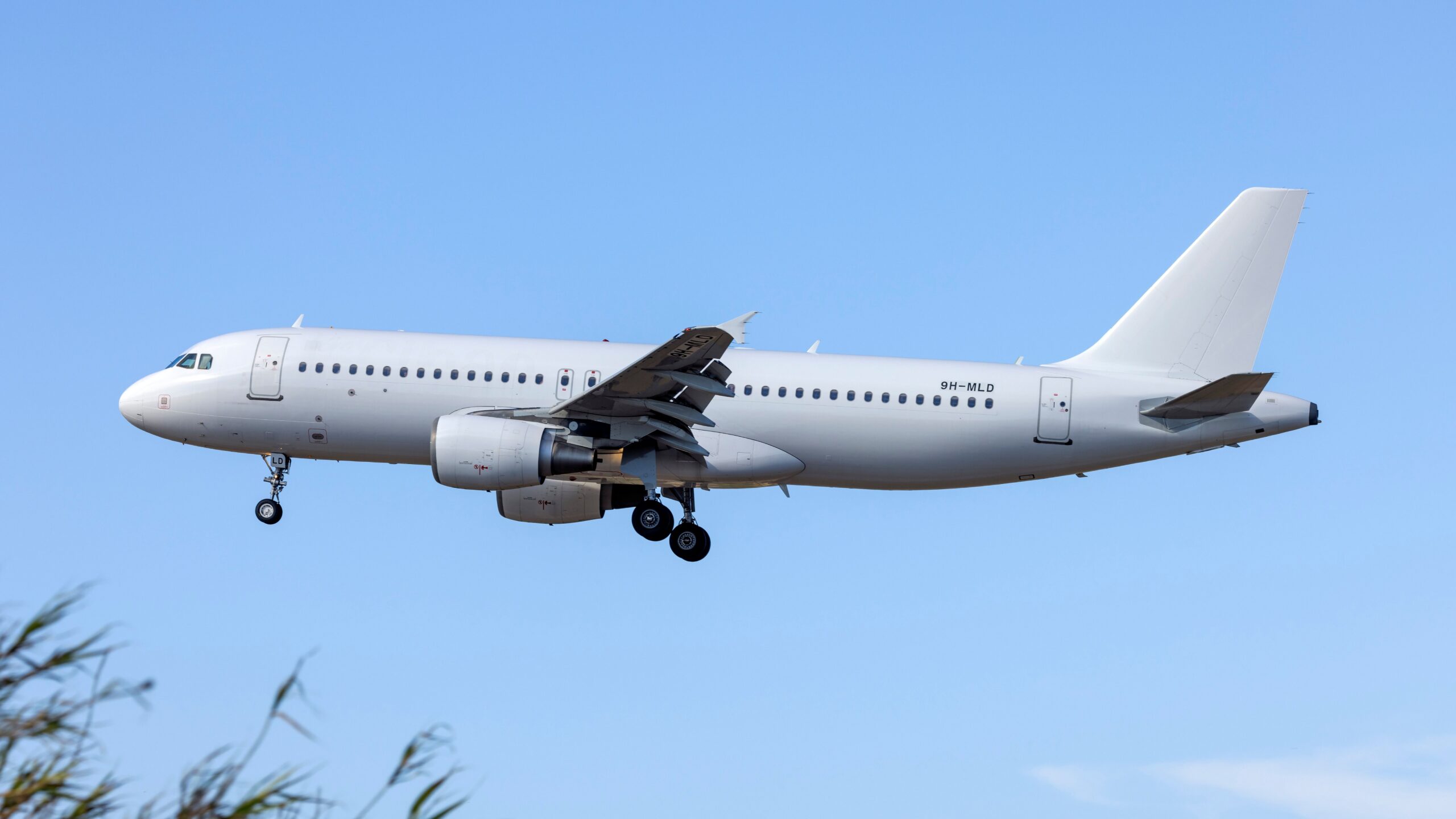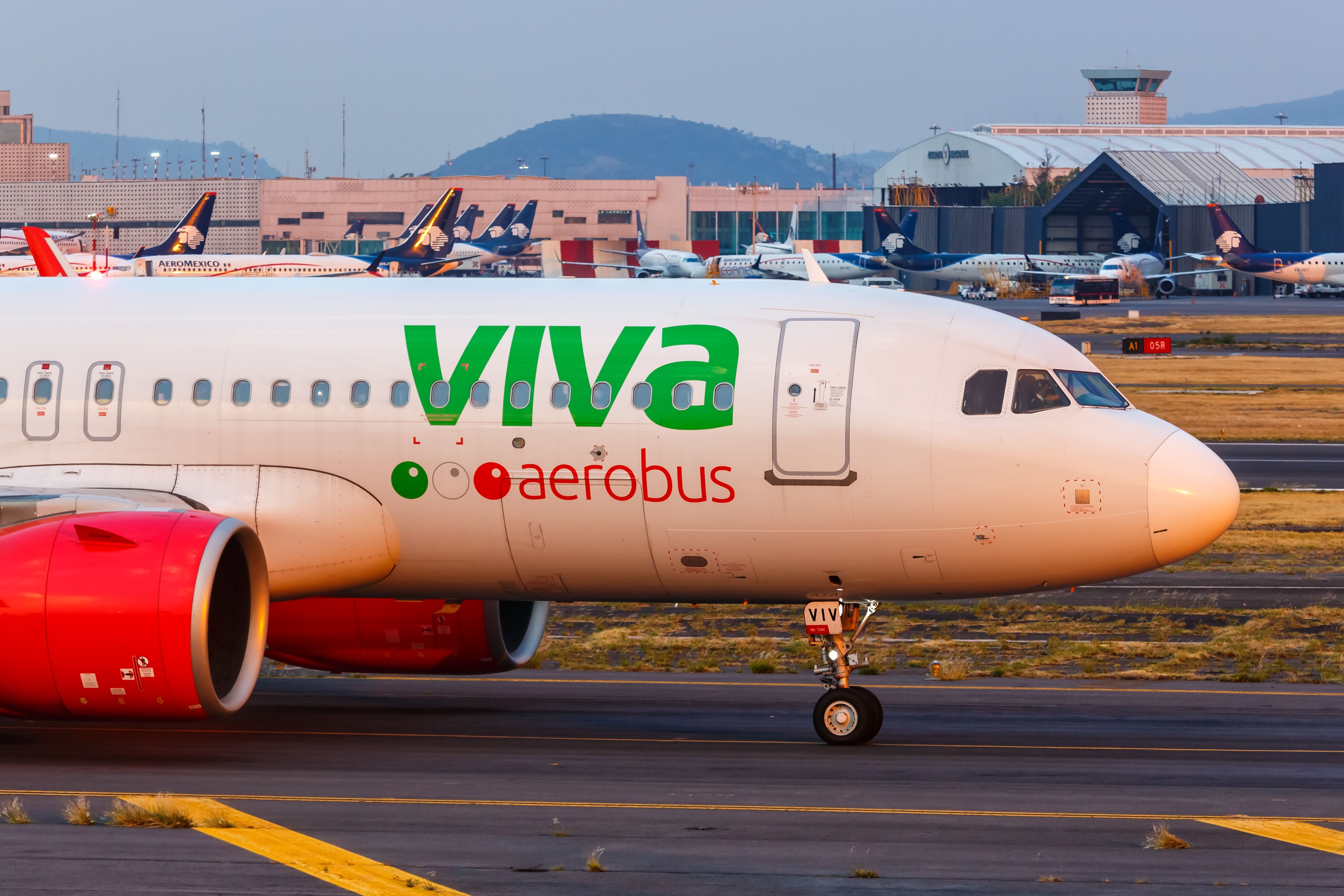Summary
- Viva Aerobus is wet leasing up to three aircraft to counteract the impact of Pratt & Whitney’s engine issues, which have affected over 40 carriers worldwide.
- Mexican pilots are opposed to the wet leasing practice because it involves employing foreign crews on domestic flights, which is forbidden by law.
- The Pratt & Whitney engine issues, which began in July 2023, have resulted in the grounding of aircraft for several airlines, including Viva Aerobus, Volaris, IndiGo, ANA, and Spirit Airlines.
The Mexican ultra-low-cost carrier Viva Aerobus is wet leasing up to three Airbus A320-family-based aircraft to counteract the impact of Pratt & Whitney’s GTF engine issues. Avion Express has delivered the first aircraft, which has, in turn, operated its first commercial passenger flight on Thursday, according to data from Flightradar24.
Wet leasing new planes
To address the ongoing Pratt & Whitney’s GTF engine problem, which has impacted over 40 carriers worldwide, Viva Aerobus has reached agreements with the Lithuanian company Avion Express to wet lease up to three aircraft.
The first of these planes arrived in Mexico on November 14. Registration 9H-SWB, this plane is operated by Avion Express Malta. According to data from Flightradar24, the aircraft performed its first commercial flight on Thursday, flight VB4080, between Monterrey International Airport (MTY) and Tijuana International (TIJ).
Photo: Markus Mainka | Shutterstock
In its third-quarter 2023 financial results, Viva Aerobus talked about the impact the GTF engine issues were having on the company. It stated,
“Although we continue to manage the variables under our control, the recent announcement by Pratt & Whitney (‘P&W’) regarding accelerated preventive inspections of some parts of their engines will exert greater pressure on the aviation industry, including our operation.”
Viva Aerobus added inspections in their maintenance workshops should begin in early 2024 and persist throughout 2025. The company is working closely with P&W to determine the inspection schedule and the impact on the fleet for the following year. “Meanwhile, we are seeking to partially offset the impact in 2024 through the arrival of new aircraft, extensions in some leases, and the pursuit of short-term leases in a highly demanded market.”
Mexican pilots are not happy
A wet lease is a practice in which a company provides a plane and a crew to another firm. It is a widely common practice in the industry; however, employing foreign crews on domestic flights in Mexico is forbidden.
Mexican pilots, represented by the Asociación Sindical de Pilotos Aviadores de México (ASPA, a Union) and the Colegio de Pilotos Aviadores de México (CPAM, a college), have expressed their rejection and condemnation against Viva Aerobus’ wet leasing. In a statement, the CPAM argued,
“The problem lies in the fact that the aircraft and their respective crews available for leasing at this time are of foreign nationality, which is illegal both from the perspective of civil aviation and under the Federal Labor Law in its chapter on aeronautical crews. While the Civil Aviation Law permits the temporary leasing of foreign aircraft not permanently registered to be operated by Mexican airlines and solely to cover emergencies, it in no way authorizes airlines to engage in leases with crews of foreign nationality.”
Simple Flying reached Viva Aerobus for clarification if flight VB4080 already had foreign crews onboard. The company did not respond.
The P&W GTF engine issues
The Pratt & Whitney issues began in July 2023, when RTX, the parent company, announced that about 1,200 of its next-generation turbofan engines would have to be inspected and partially disassembled. Since then, numbers have varied, and it could be as high as 3,000 impacted engines.
Pratt & Whitney found microscopic contaminants in a powdered metal used in high-pressure turbine discs, leading to cracks in the engines. The impacted engines were manufactured between October 2015 and September 2021.
Photo: Pratt & Whitney
Viva Aerobus identified three GTF engines possibly impacted in July and sent them for inspection in September, the company said. During the third quarter, the ultra-low-cost carrier had an average of 3.5 A320neo aircraft grounded, mostly due to the P&W engine issues.
Other companies impacted by the issues include Volaris, which had to fire 200 employees recently; IndiGo, which had to ground more A320 aircraft (in addition to the 40 that are already grounded due to supply-chain issues with P&W engines; ANA cutting over 3.5% of flights next year; and Spirit Airlines.
What do you think about Viva Aerobus wet leasing aircraft to address the grounding issues globally? Let us know in the comments below.
Source: ch-aviation, FlightRadar24.



